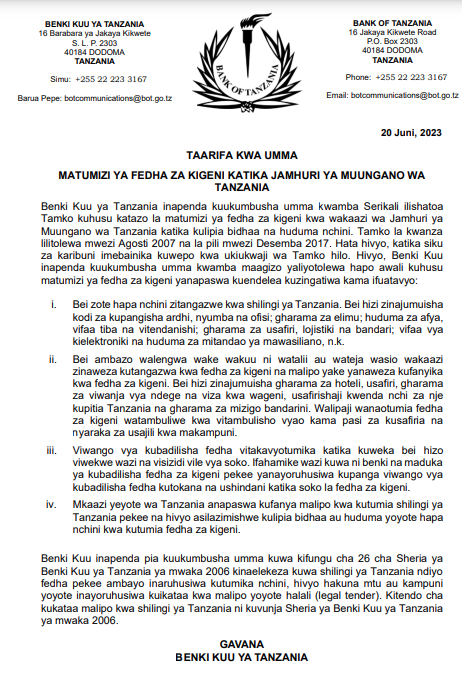Tanzanian Government to Drill Wells for Low-Income Farmers, Aiming to Transform Agriculture and Alleviate Poverty
Mbeya, Tanzania — In a groundbreaking move to revolutionize agriculture and uplift low-income farmers, the Tanzanian government has unveiled an ambitious plan to drill wells across all 184 councils in the country. Spearheaded by the National Irrigation Commission, this initiative is poised to reshape the lives of 27,600 farmers by providing them with essential resources for efficient and year-round cultivation.
Raymond Mndolwa, the visionary director general of the National Irrigation Commission, shared the intricacies of this transformative project. Each deserving farmer will be granted a parcel of two and a half hectares, complemented by eight pipes, a cutting-edge filtration system, a state-of-the-art well, and an eco-friendly solar pump. To ensure consistent access to water for irrigation, a capacious 5,000-liter tank will also be installed for every farmer.
This comprehensive effort stems from the government’s dedication to bolstering agricultural productivity, as Mndolwa emphasized, “Our primary objective is to empower farmers to enhance their crop yields and ultimately elevate their income levels.” Notably, the project’s initial phase will bear no financial burden on the farmers, with the government covering the costs of the wells and irrigation equipment. However, a sustainable model has been envisioned wherein farmers gradually shoulder the expenses.
One beneficiary, Gregory, expressed his profound gratitude for the life-changing support extended by the government. Previously reliant on unpredictable rainfed agriculture, he now rejoices in the ability to cultivate his land year-round. Encouraging his fellow youth to embrace agriculture, Gregory highlighted the burgeoning demand for Tanzanian produce in domestic and international markets.
With an estimated cost of TZS 100 billion (US$40 million), the initiative has been strategically designed to target underserved regions currently devoid of irrigation infrastructure. Extensive training programs have been implemented to equip farmers with the necessary skills to operate and maintain their irrigation systems proficiently.
Beyond its agricultural impact, the initiative is anticipated to catalyze employment opportunities on an impressive scale, potentially generating up to 100,000 jobs. Government officials hold high hopes that this project will significantly alleviate poverty by a projected 10%, a substantial stride towards a more prosperous Tanzania.


